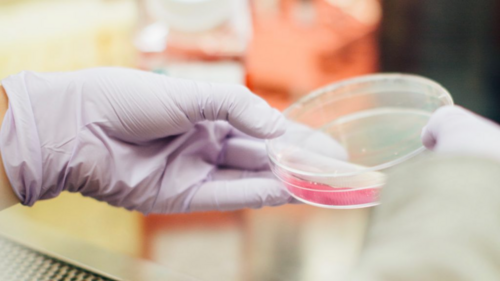News
UCT Professor Pioneering Revolutionary Technology for STI Detection

Professor Jo-Ann Passmore, a distinguished medical scientist specialising in sexual reproductive health at the University of Cape Town (UCT), is at the forefront of a groundbreaking technological advancement aimed at swiftly identifying bacterial vaginosis (BV) and associated genital tract inflammation, even when symptoms are absent.
The pioneering biomedical research led by Professor Passmore has uncovered a significant correlation between genital inflammation, sexually transmitted infections (STIs), BV, and their crucial role as risk factors in HIV transmission and pregnancy complications, especially among adolescent girls.
Also Read: China’s Support to Modernise SA’s Electricity Infrastructure: Ramakgopa
At the heart of Passmore’s research lies the investigation of inflammatory biomarkers within the genital tract and the mucosal surface immunity that either safeguards against or heightens vulnerability to STIs like HPV and HIV. Her team conducts controlled trials and cross-over studies, evaluating how hormonal contraceptives affect HIV risk among young South African women.
The research underscores the predicaments of limited access to healthcare services and the substantial costs of STI-specific tests. This has led to a heavy reliance on diagnosing STIs and BV based on observable clinical signs and symptoms. The concern lies in the substantial number of women and adolescent girls carrying these infections silently, which can lead to undetected and untreated cases.
Compounding the issue are barriers such as medication costs, the stigma around STIs and BV, and the inconvenience of lengthy clinic visits, all of which discourage individuals from seeking medical attention and result in low diagnosis and treatment rates.
The research also emphasises the higher HIV infection risk faced by adolescent girls and young women aged 15 to 24 compared to their male counterparts. UNAIDS reported that in 2022, adolescent girls and young women in sub-Saharan Africa were three times more likely to contract HIV than their male peers within the same age group.
In addition to the diagnostic challenges, Passmore points out that current treatments for STIs and BV in Africa heavily depend on samples collected from clinical trials in more developed regions, needing more representation from Africa. This lack of African data underscores the pressing need for targeted research on the continent to develop effective treatments tailored to African women.
To address the elevated HIV infection rates and improve pregnancy outcomes in sub-Saharan Africa, Passmore advocates a comprehensive approach that tackles underlying issues holistically.
In pursuit of a solution for diagnosing asymptomatic STIs and BV, Passmore and her UCT team are actively developing revolutionary technology—a test for genital inflammation using vaginal samples. This innovative approach enables early detection and intervention in cases where symptoms are absent, thereby reducing the risk of HIV transmission.
Similar to an off-the-shelf pregnancy test, this technology features a non-invasive, cost-effective, and user-friendly design, allowing for swift administration in primary care settings or at home. This foundational research also lays the groundwork for developing live probiotics to treat BV and related genital tract inflammation.
Professor Passmore highlights that by understanding the geographic variations in vaginal microbiomes that contribute to BV in Africa, the Vaginal Microbiome Research Consortium for Africa can design targeted interventions, tailor-made and accessible for African women and adolescent girls. This comprehensive reiteration encapsulates the groundbreaking work of Professor Passmore and her team, highlighting their efforts to confront STIs, BV, and HIV with a multifaceted approach involving innovative technology and tailored interventions.
Source: A UCT professor is developing revolutionary STI detection technology
Also Read:
Follow us on Google News
Photo: Supplied by Cape Town ETC






















